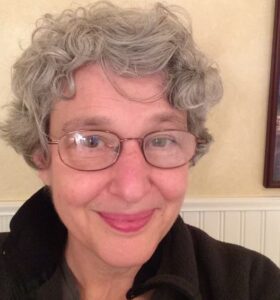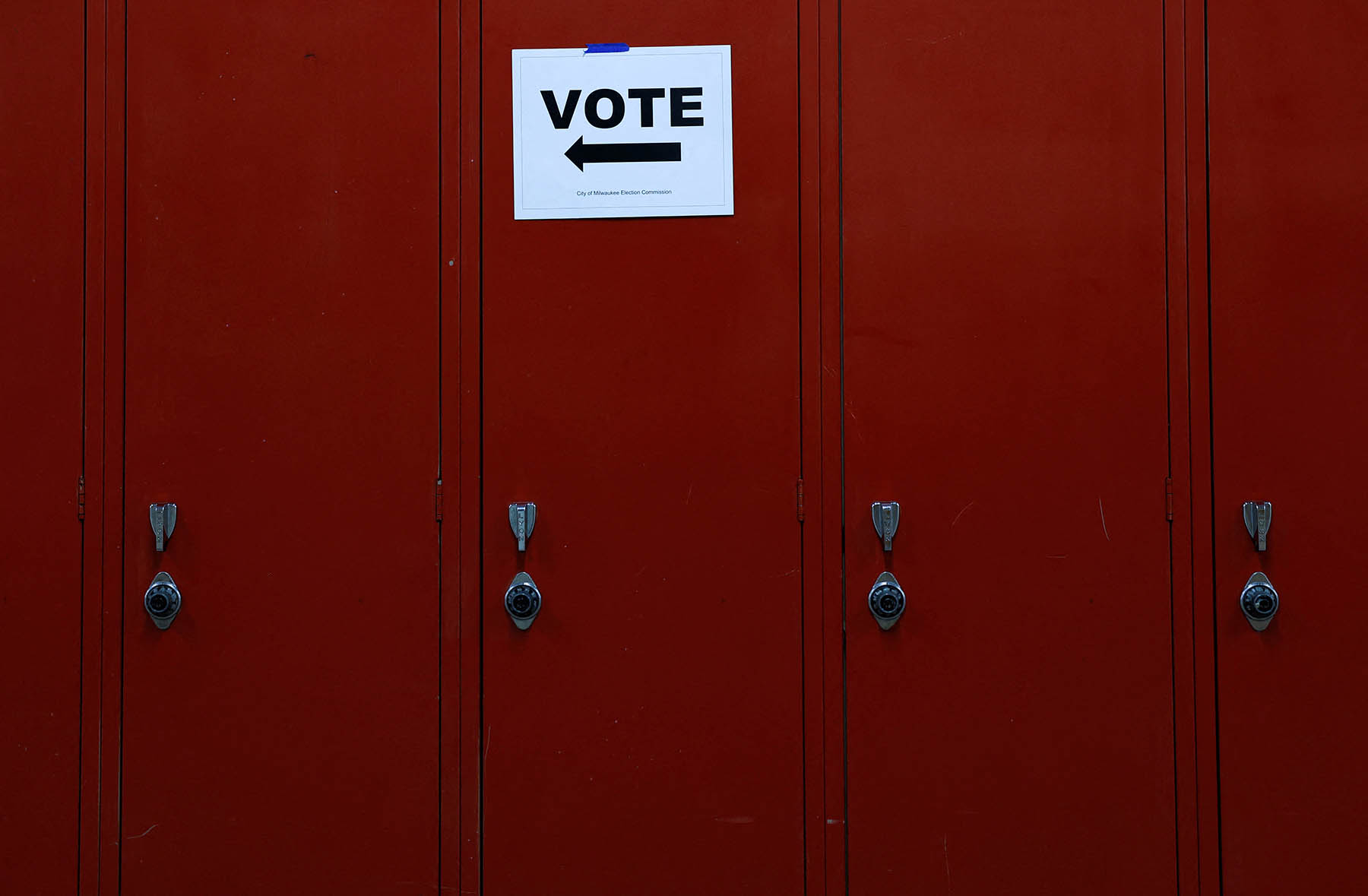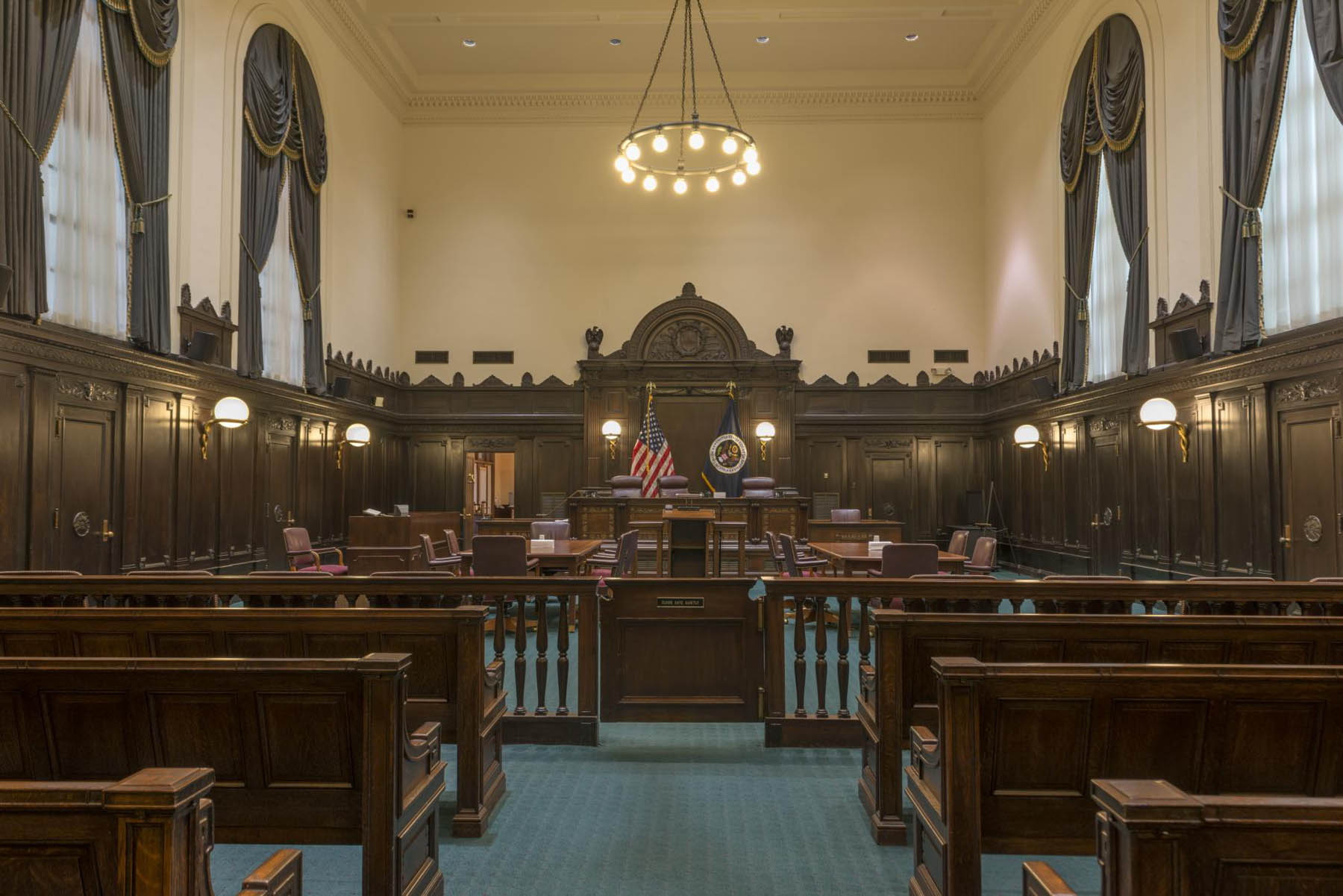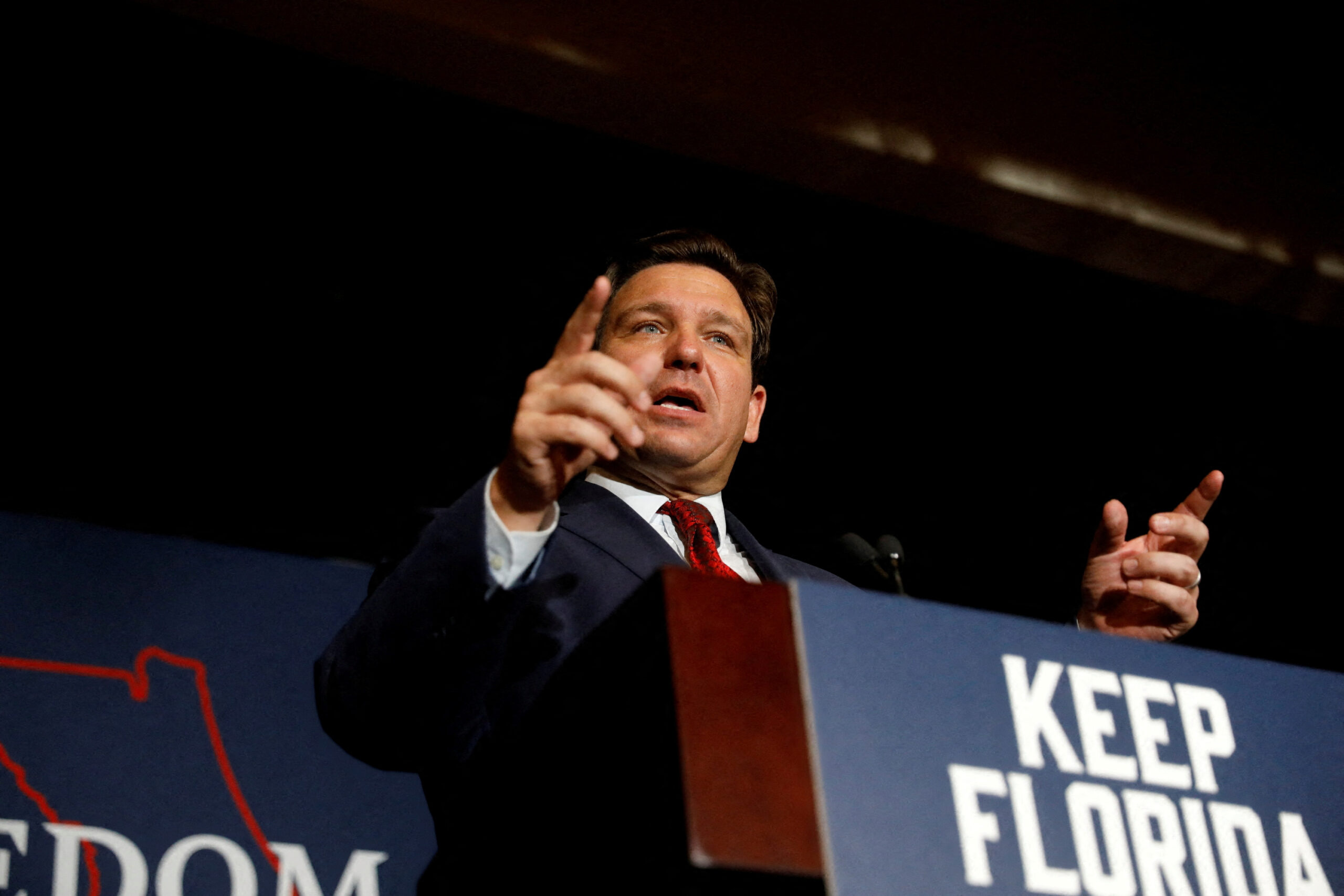Medical licensing boards across the country urged doctors to avoid sharing unsubstantiated information about COVID-19 during the global pandemic. Some who did not heed that warning faced discipline, raising questions about the limits of free speech protections for medical professionals during a public health emergency.
Dr. Meryl Nass is a University of Mississippi-educated and board-licensed general internal medicine practitioner in Ellsworth, Maine who expressed views throughout the COVID-19 pandemic that were not accepted by the broader medical community. Now she is embroiled in an ongoing controversy that tests the boundaries of freedom of speech for medical practitioners who give advice that conflicts with accepted medical practice.
During the pandemic, Nass often used personal blogs and other online mediums to criticize the government’s handling of the crisis, question the effectiveness of mask mandates, tout the promise of unproven medications, and express doubts about the safety of the vaccine. She gained a significant following in the process: she has more than 34,00 subscribers on Substack and more than 24,000 on X, formerly Twitter.
She is also a frequent commentator on CHD.TV, a popular streaming channel produced by Children’s Health Defense, an anti-vaccine group chaired by Robert F. Kennedy, Jr., who recently launched an independent bid for president.
She has said, among other things, according to court filings, that she “did not intend to comply with masking and vaccine orders,” described that people were “the guinea pigs for these vaccines,” and declared that “people who are not getting vaccinated are tending to be the most educated, the wealthiest.” Nass contends, according to court filings, these statements and others like them are “accurate and scientifically supported.” Many of her colleagues and contemporaries, however, say otherwise.
In January 2022, the Maine Board of Licensure in Medicine (BOLIM) suspended Nass’ license, ordering a psychological evaluation and an adjudicatory hearing, following an investigation sparked by a report that she had diagnosed a patient with COVID-19 over the phone and prescribed a five-day course of Ivermectin, an antiparasitic that is not approved or recommended by the U.S. Food and Drug Administration to treat patients with COVID-19. The board had also received at least two complaints that Nass had been spreading unsubstantiated information about the pandemic.
Among the 17 listed “grounds for disciplinary action”, according to court filings, Nass argues four of them were based on her speech. After she pushed back, arguing that her speech was protected under the First Amendment, BOLIM removed the “misinformation” allegations, but other citations based on patient care, competence, record-keeping and truth-telling remained.
In August, Nass filed a lawsuit in the U.S. District Court for the District of Maine, paid for by Children’s Health Defense, alleging that BOLIM is retaliating against her for constitutionally protected speech. The litigation is ongoing, and oral arguments are scheduled for January 2024.
“Dr. Nass’s statements to the public about the COVID-19 related topics were reasonable and protected speech considering the novelty of the virus and relied on available medical literature, even if those statements conflicted with the BOLIM’s preferred viewpoints,” the lawsuit reads.
At the heart of her lawsuit is a position statement released by the Federation of State Medical Boards and adopted by numerous medical boards across the country, including Maine’s. The statement said, in part, that “physicians who generate and spread COVID-19 vaccine misinformation or disinformation are risking disciplinary action by state medical boards, including the suspension or revocation of their medical license.”
Nass claims the position statement, as it’s used by BOLIM to enforce disciplinary actions, chills the protected speech of physicians in the state who may be “fearful” of the board’s “threatened discipline.”
In the closing arguments of her disciplinary hearings, she claimed that the case against her is “about censorship.” But BOLIM argued the case is “about patient care—more precisely, Dr. Nass’ failure to provide safe and appropriate care to her patients.”
“Dr. Nass repeatedly failed to comply with applicable medical standards and repeatedly violated her duties to her patients,” the board argued. “Dr. Nass may argue that this case is about other issues, including disciplining her for expressing her views on social media or in other public forums. Please, do not be distracted by such attempts to divert attention from her own deficiencies. No counts relate to her public communications, and any of Dr. Nass’ arguments to the contrary should be disregarded as irrelevant.”
On Dec. 12, BOLIM published a full decision in Nass’ case, finding that she engaged in “incompetence, unprofessional conduct, in deceit and misrepresentation, and violated Board rules.” It extended her suspension to April 30, 2025, which coincides with the expiration of her medical license, and imposed a $10,000 fine as well as a two-year probationary period during which she must submit to monitoring and complete continuing education and ethics courses in order to see her license reinstated.
“I have to be continually punished so that no one, no doctors ever dare step out of line again,” Nass told local news outlet, The Maine Wire, following the release of the decision. “They will see that even when you do nothing, the board can come down on you in this manner.”
BOLIM declined to comment for this story. The Federation of State Medical Boards, a national nonprofit organization which supports state medical boards in the licensing, discipline and regulation of physicians, did not respond to multiple requests for comment.
Gene Libby, Nass’ attorney, said the speech-based violations were only removed from her record because BOLIM realized it couldn’t “silence [her] without running afoul of the First Amendment.” The goal of the lawsuit, he said, is to prevent future suspensions under similar grounds, as BOLIM “still has this so-called policy against misinformation and disinformation which they can pull out of their pocket at any time they choose, for Dr. Nass or any other physician whose speech they do not like.”
This case raises compelling questions surrounding a doctor’s First Amendment rights and the imperative to protect public health during an ongoing global pandemic. The restriction on physician speech, and where to draw the line between the Hippocratic Oath’s bedrock principle “do no harm” and First Amendment protections, has stirred up more questions for legal scholars than answers.
Experts say the pandemic created a fraught moment where the need for healthcare professionals to adhere to the highest standards to promote public health was being weighed against free speech protections in an unprecedented way. Misinformation can be deadly, but accountability for spreading it remains elusive.
In 2021, the World Health Organization reported that studies suggest nearly 6,000 people around the world were hospitalized in the first three months of 2020 due to COVID-19 misinformation. That same year, the Federation of State Medical Boards released a survey which found that of its member state medical boards, 67 percent reported experiencing “an increase in complaints related to licensee dissemination of false or misleading information.”
But despite this reported increase, a Washington Post investigation released in August, which analyzed disciplinary records from medical boards in all 50 states and featured Nass, found that doctors who shared misinformation with their patients were rarely disciplined. Some faced temporary suspensions, but only one had their license revoked.
The First Amendment does not protect all speech, like harassment, true threats, or incitement to imminent lawless action, but it does generally protect misinformation. During the pandemic, however, questions were raised about whether the speech of physicians should be held to a different standard even outside of doctor-patient relationships.
“The pandemic certainly brought a lot of these issues to the forefront,” said Carl Coleman, law professor at Seton Hall Law School who specializes in legal and ethical issues in public health.
In 2014, the U.S. Court of Appeals for the Ninth Circuit held that “outside the doctor-patient relationship, doctors are constitutionally equivalent to soapbox orators and pamphleteers, and their speech receives robust protection under the First Amendment.”
That speech, carrying the weight of a doctor’s expertise, can still cause harm. Government attempts at regulation of such speech, however, have faced First Amendment challenges at both the federal and state level.
At the urging of the Biden administration, social media platforms attempted to curb COVID-19 mis- and disinformation by removing unsubstantiated claims or suspending accounts of the users who spread them. But Children’s Health Defense filed a lawsuit in March, later consolidated with another in Missouri and Louisiana, claiming the government’s efforts violated users’ freedom of speech.
In July, Judge Terry A. Doughty of the U.S. District Court for the Western District of Louisiana upended the government’s efforts to curtail troublesome speech online and prohibited the administration and other key government agencies from communicating with major social media platforms about user content the sites host, describing the government’s efforts as a “far-reaching and widespread censorship campaign.” Judge Doughty’s order was significantly narrowed by the U.S. Court of Appeals for the Fifth Circuit, but the appellate court said officials cannot attempt to “coerce or significantly encourage” changes in online content.
The Supreme Court decided to take on the case, and on Oct. 23, blocked the lower courts restrictions on the administration’s communications with social media companies throughout the duration of the litigation.
Attempts by state-authorized medical licensing boards to enforce standards of professional conduct raise different issues. Aside from licensing physicians, state medical boards are expected to ensure its physicians adhere to the professional standard of care, investigate complaints and discipline physicians if necessary.
There is no identical precedent for lawmakers, medical licensing boards or physicians to turn to when questioning where the lines are in regards to their speech. But some cases reflect aspects of the legal nuances.
In 2017, the Supreme Court sided with crisis pregnancy centers in NIFLA v. Becerra, in which it ruled that a California law that imposes disclosure requirements on anti-abortion pregnancy clinics violated the facilities’ right to free speech.
In the court’s majority opinion, Justice Clarence Thomas wrote that the high court “has never recognized ‘professional speech’ as a separate category of speech subject to different rules. Speech is not unprotected merely because it is uttered by professionals.”
State lawmakers have been grappling with whether, if at all, physicians can be held accountable for speech outside of the doctor-patient relationship and have attempted to regulate the power of state medical boards. But the Federation of State Medical Boards has stated that it “strongly opposes any effort to restrict a board’s authority to evaluate the standard of care and assess risk for patient harm.”
In California, Gov. Gavin Newsom signed a law in September 2022 which sought to discipline physicians for spreading COVID-19 misinformation. Numerous physicians challenged the constitutionality of the law in multiple lawsuits, and Gov. Newsom signed a state Senate bill in late September which quietly repealed the law.
A Florida law, called “Protections of Medical Conscience,” went into effect in July and allows state physicians to “opt out of participation in or payment for any health care service on the basis of a conscience-based objection,” and prohibits state medical boards from disciplining physicians for their speech uttered outside of direct patient care, such as on social media or personal blogs. The American Civil Liberties Union of Florida condemned the passage of the bill in May, saying “medical standards — not ethical, moral, or religious beliefs — should guide medical treatment and health care services.”
Four Washington state physicians also filed suit in July against their state’s medical board, claiming they were, or could be, disciplined as a result of their “disagreement with the mainstream policies for the treatment of COVID-19” that they shared on public mediums. Another physician in the state also filed a separate suit, asserting that opinion columns he wrote about COVID-19 are protected under the First Amendment.
According to Coleman, it’s “really a matter of opinion at this point as to what the First Amendment protects.” He said that in his view and “in most circumstances in which doctors are speaking to the public, their speech is protected, even if it is inconsistent with the generally accepted medical view.”
He suggested that disciplinary action might only be appropriate “if a board can establish that a physician has disseminated information [publicly] that she knows to be false or with reckless disregard as to whether it is true … [similar to] the ‘actual malice’ standard applied to defamation cases brought by public officials and public figures.”
If doctors discuss something that doesn’t “adhere to the standard of practice and standard of care” and it’s automatically considered “misinformation” with the possibility of discipline, that “would be really dangerous,” Coleman said. “That would impede medical progress and would create this chilling effect on scientific inquiry.”
Wendy Parmet, director of Northeastern University’s Center for Health Policy and Law, agrees that the questioning of conventional wisdom is necessary to scientific evolution, but professions have certain “rules of the road and customs about how you dissent,” such as writing a letter to the editor of a medical journal.
“What you don’t do is go on TV or write a screed on Facebook telling people to do ‘X’ as if it’s clear knowledge, as if the profession itself is all telling a lie,” she said.
Parmet says that it’s difficult to separate “the practice of medicine” from “speech about medical issues.” It’s critical for physicians to speak outside of the doctor-patient relationship and convey information that may not yet be widely accepted, she said, but “when they give bad information, and do so in a way that will live on their medical authority to do so, they should be subject to sanction.”
She doesn’t believe that “should be easy” or “done readily,” but does think that these actions cause real harm to people as well as the medical profession.
“It helps to lead to an erosion of trust in the medical profession if it is unable to police what its members do to some extent,” she said, “and so the idea that professionals are held to professional standards, even though that is primarily within the physician-patient relationship context, I believe should extend.”
Aug. 16, 2023 — Dr. Meryl Nass Complaint
Tags








